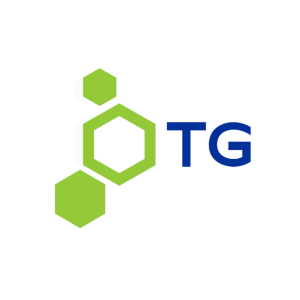New Data for BRIUMVI® (ublituximab-xiiy) Demonstrate that 92% of Patients with Relapsing Multiple Sclerosis Were Free from Disability Progression After 5 Years of Treatment
Rhea-AI Summary
TG Therapeutics (NASDAQ: TGTX) presented updated 5-year data from the ULTIMATE I & II Phase 3 trials of BRIUMVI® (ublituximab-xiiy) in relapsing multiple sclerosis (RMS) at the 2024 ECTRIMS meeting. Key findings include:
- 92% of patients were free from disability progression after 5 years of BRIUMVI treatment
- Annualized relapse rate in year 5 was 0.020 (1 relapse per 50 patient-years)
- Safety profile remained consistent over 5 years with no new signals
- Patients who switched from teriflunomide to BRIUMVI saw a 58.4% reduction in relapse rate
- 17% of patients on continuous BRIUMVI achieved confirmed disability improvement
The data support BRIUMVI as a valuable long-term treatment option for RMS patients, demonstrating sustained clinical efficacy and a tolerable safety profile.
Positive
- 92% of patients were free from disability progression after 5 years of BRIUMVI treatment
- Annualized relapse rate decreased to 0.020 in year 5, equivalent to one relapse per 50 patient-years
- Patients switching from teriflunomide to BRIUMVI experienced a 58.4% reduction in annualized relapse rate
- 17% of patients on continuous BRIUMVI for 5 years achieved Confirmed Disability Improvement
- Safety profile remained consistent over 5 years with no new safety signals emerging
Negative
- None.
News Market Reaction 1 Alert
On the day this news was published, TGTX gained 0.68%, reflecting a mild positive market reaction.
Data tracked by StockTitan Argus on the day of publication.
During year 5 of treatment with BRIUMVI the annualized relapse rate was 0.020, equivalent to one relapse occurring every 50 years of patient treatment
Overall safety profile of BRIUMVI remained consistent over 5 years of continuous treatment, with no new safety signals emerging with prolonged treatment
NEW YORK, Sept. 18, 2024 (GLOBE NEWSWIRE) -- TG Therapeutics, Inc. (NASDAQ: TGTX), today announced updated data presentations including new five-year data from the ULTIMATE I & II Phase 3 trials evaluating BRIUMVI® (ublituximab-xiiy) in patients with relapsing forms of multiple sclerosis (RMS), at the 2024 European Committee for Treatment and Research in Multiple Sclerosis (ECTRIMS) annual meeting, where we and our partner in Europe, Neuraxpharm, are exhibiting. Highlights from the presentations are outlined below.
Bruce Cree, MD, PhD, MAS, Zimmermann Endowed Professor in Multiple Sclerosis, and Professor of Neurology at UCSF Weill Institute for Neurosciences, University of California, San Francisco stated, “The long-term data presented today continues to demonstrate BRIUMVI’s potential for impacting the lives of RMS patients worldwide. The sustained clinical efficacy as illustrated by extremely low rates of relapse and limited disability progression combined with a tolerable safety profile at this 5 year follow up is important for clinicians and patients alike when considering high-efficacy therapy options.”
Michael S. Weiss, the Company’s Chairman and Chief Executive Officer stated, “We are pleased today to present long-term data for BRIUMVI from the open-label extension of our pivotal ULTIMATE I & II Phase 3 studies. These data demonstrate that patients treated with BRIUMVI for up to 5 years had sustained clinical benefit, including further reductions in the risk of relapse in later years of treatment and an impressively low rate of confirmed disability progression. The data further demonstrate that patients who started BRIUMVI early had improved long-term outcomes compared to those who were initially treated with teriflunomide and then switched to BRIUMVI in the open-label extension.” Mr. Weiss continued, “Importantly, these long-term benefits were observed in the context of a consistent safety profile to that seen in our pivotal studies, with no new safety signals emerging with longer-term treatment. We believe that these data continue to support BRIUMVI’s role as a valuable treatment option for patients with relapsing forms of MS.”
DATA HIGHLIGHTS:
Poster Presentation: Five years of BRIUMVI (ublituximab) in relapsing multiple sclerosis: Results from the open-label extension of ULTIMATE I and II studies
- Patients who continued BRIUMVI treatment exhibited low and decreasing annualized relapse rate (ARR) throughout the observation period, ARR: 0.053, 0.032, and 0.020 for Years 3, 4, and 5, respectively.
- During Year 1 of the open label extension (OLE), patients who switched from teriflunomide to BRIUMVI experienced a significant reduction (-
58.4% ) in ARR (0.182 vs 0.076). - After 5 years of continuous BRIUMVI treatment,
8% of patients had Confirmed Disability Progression (CDP) lasting 24 weeks compared to14.3% of patients who switched from teriflunomide to BRIUMVI [HR (95% CI): 0.612 (0.414, 0.904); p=0.0126], and92% remained progression free with continuous BRIUMVI treatment. 17% of patients treated with BRIUMVI continuously for 5 years achieved Confirmed Disability Improvement (CDI) lasting at least 24 weeks compared to12.2% of patients who switched from teriflunomide to BRIUMVI [HR (95% CI): 1.472 (1.048, 2.067); p=0.0249], resulting in one in six patients experiencing improvement in disability after 5 years of continuous BRIUMVI treatment.- The overall safety profile of BRIUMVI remained consistent over 5 years of continuous treatment in an exposure-adjusted analysis of adverse events (AEs), with no new safety signals emerging with prolonged treatment.
- Immunoglobulin levels remained stable with prolonged BRIUMVI treatment, and the mean IgM and IgG levels remained above the lower limit of normal. There was no association between decreased immunoglobulin levels and risk of serious infections.
Updated data were also presented from a post-hoc analysis of the ULTIMATE I and II studies.
E Poster Presentation: Comparison of Multiple Sclerosis Disease Activity (MSDA) Test Results Between Patients Treated with BRIUMVI (ublituximab) and Teriflunomide in the Phase 3 ULTIMATE I and II Studies
- BRIUMVI treatment over 96 weeks resulted in significant average treatment effects versus the teriflunomide arm for the overall Disease Activity Score and each of the 4 Disease Pathway Scores (all scores decrease for the BRIUMVI arm), and 10 individual biomarkers over the duration of the study.
The data presentations are also available on the Publications page, located within the Pipeline section, of the Company’s website at http://www.tgtherapeutics.com/publications.cfm.
ABOUT THE ULTIMATE I & II PHASE 3 TRIALS
ULTIMATE I & II are two randomized, double-blind, double-dummy, parallel group, active comparator-controlled clinical trials of identical design, in patients with RMS treated for 96 weeks. Patients were randomized to receive either BRIUMVI, given as an IV infusion of 150 mg administered in four hours, 450 mg two weeks after the first infusion administered in one hour, and 450 mg every 24 weeks administered in one hour, with oral placebo administered daily; or teriflunomide, the active comparator, given orally as a 14 mg daily dose with IV placebo administered on the same schedule as BRIUMVI. Both studies enrolled patients who had experienced at least one relapse in the previous year, two relapses in the previous two years, or had the presence of a T1 gadolinium (Gd)-enhancing lesion in the previous year. Patients were also required to have an Expanded Disability Status Scale (EDSS) score from 0 to 5.5 at baseline. The ULTIMATE I & II trials enrolled a total of 1,094 patients with RMS across 10 countries. These trials were led by Lawrence Steinman, MD, Zimmermann Professor of Neurology & Neurological Sciences, and Pediatrics at Stanford University. Additional information on these clinical trials can be found at http://www.clinicaltrials.gov (NCT03277261; NCT03277248).
ABOUT BRIUMVI® (ublituximab-xiiy) 150 mg/6 mL Injection for IV
BRIUMVI is a novel monoclonal antibody that targets a unique epitope on CD20-expressing B-cells. Targeting CD20 using monoclonal antibodies has proven to be an important therapeutic approach for the management of autoimmune disorders, such as RMS. BRIUMVI is uniquely designed to lack certain sugar molecules normally expressed on the antibody. Removal of these sugar molecules, a process called glycoengineering, allows for efficient B-cell depletion at low doses.
BRIUMVI is indicated for the treatment of adults with relapsing forms of multiple sclerosis (RMS), to include clinically isolated syndrome, relapsing-remitting disease, and active secondary progressive disease.
A list of authorized specialty distributors can be found at www.briumvi.com.
IMPORTANT SAFETY INFORMATION
Contraindications: BRIUMVI is contraindicated in patients with:
- Active Hepatitis B Virus infection
- A history of life-threatening infusion reaction to BRIUMVI
WARNINGS AND PRECAUTIONS
Infusion Reactions: BRIUMVI can cause infusion reactions, which can include pyrexia, chills, headache, influenza-like illness, tachycardia, nausea, throat irritation, erythema, and an anaphylactic reaction. In MS clinical trials, the incidence of infusion reactions in BRIUMVI-treated patients who received infusion reaction-limiting premedication prior to each infusion was
Observe treated patients for infusion reactions during the infusion and for at least one hour after the completion of the first two infusions unless infusion reaction and/or hypersensitivity has been observed in association with the current or any prior infusion. Inform patients that infusion reactions can occur up to 24 hours after the infusion. Administer the recommended pre-medication to reduce the frequency and severity of infusion reactions. If life-threatening, stop the infusion immediately, permanently discontinue BRIUMVI, and administer appropriate supportive treatment. Less severe infusion reactions may involve temporarily stopping the infusion, reducing the infusion rate, and/or administering symptomatic treatment.
Infections: Serious, life-threatening or fatal, bacterial and viral infections have been reported in BRIUMVI-treated patients. In MS clinical trials, the overall rate of infections in BRIUMVI-treated patients was
Consider the potential for increased immunosuppressive effects when initiating BRIUMVI after immunosuppressive therapy or initiating an immunosuppressive therapy after BRIUMVI.
Hepatitis B Virus (HBV) Reactivation: HBV reactivation occurred in an MS patient treated with BRIUMVI in clinical trials. Fulminant hepatitis, hepatic failure, and death caused by HBV reactivation have occurred in patients treated with anti-CD20 antibodies. Perform HBV screening in all patients before initiation of treatment with BRIUMVI. Do not start treatment with BRIUMVI in patients with active HBV confirmed by positive results for HBsAg and anti-HB tests. For patients who are negative for surface premedantigen [HBsAg] and positive for HB core antibody [HBcAb+] or are carriers of HBV [HBsAg+], consult a liver disease expert before starting and during treatment.
Progressive Multifocal Leukoencephalopathy (PML): Although no cases of PML have occurred in BRIUMVI-treated MS patients, JCV infection resulting in PML has been observed in patients treated with other anti-CD20 antibodies and other MS therapies.
If PML is suspected, withhold BRIUMVI and perform an appropriate diagnostic evaluation. Typical symptoms associated with PML are diverse, progress over days to weeks, and include progressive weakness on one side of the body or clumsiness of limbs, disturbance of vision, and changes in thinking, memory, and orientation leading to confusion and personality changes.
MRI findings may be apparent before clinical signs or symptoms; monitoring for signs consistent with PML may be useful. Further investigate suspicious findings to allow for an early diagnosis of PML, if present. Following discontinuation of another MS medication associated with PML, lower PML-related mortality and morbidity have been reported in patients who were initially asymptomatic at diagnosis compared to patients who had characteristic clinical signs and symptoms at diagnosis.
If PML is confirmed, treatment with BRIUMVI should be discontinued.
Vaccinations: Administer all immunizations according to immunization guidelines: for live or live-attenuated vaccines at least 4 weeks and, whenever possible at least 2 weeks prior to initiation of BRIUMVI for non-live vaccines. BRIUMVI may interfere with the effectiveness of non-live vaccines. The safety of immunization with live or live-attenuated vaccines during or following administration of BRIUMVI has not been studied. Vaccination with live virus vaccines is not recommended during treatment and until B-cell repletion.
Vaccination of Infants Born to Mothers Treated with BRIUMVI During Pregnancy: In infants of mothers exposed to BRIUMVI during pregnancy, assess B-cell counts prior to administration of live or live-attenuated vaccines as measured by CD19+ B-cells. Depletion of B-cells in these infants may increase the risks from live or live-attenuated vaccines. Inactivated or non-live vaccines may be administered prior to B-cell recovery. Assessment of vaccine immune responses, including consultation with a qualified specialist, should be considered to determine whether a protective immune response was mounted.
Fetal Risk: Based on data from animal studies, BRIUMVI may cause fetal harm when administered to a pregnant woman. Transient peripheral B-cell depletion and lymphocytopenia have been reported in infants born to mothers exposed to other anti-CD20 B-cell depleting antibodies during pregnancy. A pregnancy test is recommended in females of reproductive potential prior to each infusion. Advise females of reproductive potential to use effective contraception during BRIUMVI treatment and for 6 months after the last dose.
Reduction in Immunoglobulins: As expected with any B-cell depleting therapy, decreased immunoglobulin levels were observed. Decrease in immunoglobulin M (IgM) was reported in
Most Common Adverse Reactions: The most common adverse reactions in RMS trials (incidence of at least
Physicians, pharmacists, or other healthcare professionals with questions about BRIUMVI should visit www.briumvi.com.
ABOUT BRIUMVI PATIENT SUPPORT
BRIUMVI Patient Support is a flexible program designed by TG Therapeutics to support U.S. patients through their treatment journey in a way that works best for them. More information about the BRIUMVI Patient Support program can be accessed at www.briumvipatientsupport.com.
ABOUT MULTIPLE SCLEROSIS
Relapsing multiple sclerosis (RMS) is a chronic demyelinating disease of the central nervous system (CNS) and includes people with relapsing-remitting multiple sclerosis (RRMS) and people with secondary progressive multiple sclerosis (SPMS) who continue to experience relapses. RRMS is the most common form of multiple sclerosis (MS) and is characterized by episodes of new or worsening signs or symptoms (relapses) followed by periods of recovery. It is estimated that nearly 1 million people are living with MS in the United States and approximately
ABOUT TG THERAPEUTICS
TG Therapeutics is a fully integrated, commercial stage, biopharmaceutical company focused on the acquisition, development and commercialization of novel treatments for B-cell diseases. In addition to a research pipeline including several investigational medicines, TG has received U.S. Food and Drug Administration (FDA) approval for BRIUMVI® (ublituximab-xiiy), for the treatment of adult patients with relapsing forms of multiple sclerosis (RMS), to include clinically isolated syndrome, relapsing-remitting disease, and active secondary progressive disease, as well as approval by the European Commission (EC) and the Medicines and Healthcare Products Regulatory Agency (MHRA) for BRIUMVI to treat adult patients with RMS who have active disease defined by clinical or imaging features in Europe and the United Kingdom, respectively. For more information, visit www.tgtherapeutics.com, and follow us on X (formerly Twitter) @TGTherapeutics and on LinkedIn.
BRIUMVI® is a registered trademark of TG Therapeutics, Inc.
Cautionary Statement
This press release contains forward-looking statements that involve a number of risks and uncertainties. For those statements, we claim the protection of the safe harbor for forward-looking statements contained in the Private Securities Litigation Reform Act of 1995.
Any forward-looking statements in this press release are based on management's current expectations and beliefs and are subject to a number of risks, uncertainties and important factors that may cause actual events or results to differ materially from those expressed or implied by any forward-looking statements contained in this press release. In addition to the risk factors identified from time to time in our reports filed with the U.S. Securities and Exchange Commission (SEC), factors that could cause our actual results to differ materially include the below.
Such forward looking statements include but are not limited to statements regarding the results of the ULTIMATE I & II Phase 3 studies, the ENHANCE Phase 3b study, and BRIUMVI as a treatment for relapsing forms of multiple sclerosis (RMS). Additional factors that could cause our actual results to differ materially include the following: the risk that the data from the ULTIMATE I & II and its Open-Label Extension (OLE) or ENHANCE trials that we announce or publish may change, or the product profile of BRIUMVI may be impacted, as more data or additional endpoints are analyzed; the risk that data may emerge from future clinical studies or from adverse event reporting that may affect the safety and tolerability profile and commercial potential of BRIUMVI; the risk that any individual patient’s clinical experience in the post-marketing setting, or the aggregate patient experience in the post-marketing setting, may differ from that demonstrated in controlled clinical trials such as ULTIMATE I and II; the risk that BRIUMVI will not be commercially successful; our ability to expand our commercial infrastructure, and successfully market and sell BRIUMVI in RMS; the Company’s reliance on third parties for manufacturing, distribution and supply, and a range of other support functions for our commercial and clinical products, including BRIUMVI, and the ability of the Company and its manufacturers and suppliers to produce and deliver BRIUMVI to meet the market demand for BRIUMVI; the failure to obtain and maintain requisite regulatory approvals, including the risk that the Company fails to satisfy post-approval regulatory requirements; the uncertainties inherent in research and development; and general political, economic and business conditions, including the risk that the ongoing COVID-19 pandemic could have on the safety profile of BRIUMVI and any of our other drug candidates as well as any government control measures associated with COVID-19 that could have an adverse impact on our research and development plans or commercialization efforts. Further discussion about these and other risks and uncertainties can be found in our Annual Report on Form 10-K for the fiscal year ended December 31, 2023 and in our other filings with the U.S. Securities and Exchange Commission.
Any forward-looking statements set forth in this press release speak only as of the date of this press release. We do not undertake to update any of these forward-looking statements to reflect events or circumstances that occur after the date hereof. This press release and prior releases are available at www.tgtherapeutics.com. The information found on our website is not incorporated by reference into this press release and is included for reference purposes only.
CONTACT:
Investor Relations
Email: ir@tgtxinc.com
Telephone: 1.877.575.TGTX (8489), Option 4
Media Relations:
Email: media@tgtxinc.com
Telephone: 1.877.575.TGTX (8489), Option 6
1. MS Prevalence. National Multiple Sclerosis Society website. https://www.nationalmssociety.org/About-the-Society/MS-Prevalence. Accessed October 26, 2020. 2. Multiple Sclerosis International Federation, 2013 via Datamonitor p. 236.









